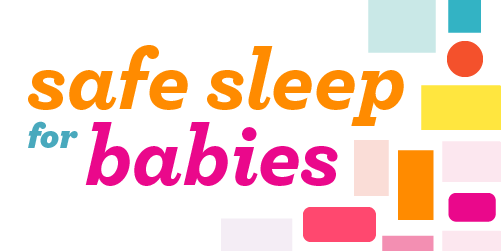
Safe Infant Sleep

The Georgia Department of Public Health’s Safe Infant Sleep Program coordinates statewide public health interventions intended to protect infants from Sudden Unexpected Infant Death (SUID) and other sleep-related causes of infant death.
Each year in the United States, more than 3,500 infants, without a prior known illness or injury, die suddenly and unexpectedly. As of 2021, Georgia averaged three infant deaths per week due to sleep-related causes, which are contributing factors to the state’s current infant mortality rate.
Georgia Safe to Sleep Campaign
In 2016, public health, health care and community leaders came together to introduce the Georgia Safe to Sleep Campaign. In Collaboration with partners, the campaign provides tools and resources that strengthen policy, provides consistent education, and changes infant sleep environments to:
- Prevent infant sleep-related deaths in Georgia,
- Empower professionals to educate parents,
- Empower families to make informed decisions about infant sleep,
- Increase access to resources that support behaviors which protect infants from sleep-related deaths,
- Promote ABCs of Safe Infant Sleep
- Alone - In their own sleep space, separate but close to you
- Back - On their back, every sleep, every nap, every time
- Crib - In a crib or bassinet with a firm, flat surface and no extra items such as pillows, blankets or toys.
Through partnership and collaboration, this campaign targets diverse groups in Georgia that contribute to an infant’s safety, health and well-being including: parents, hospitals and health providers, statewide public health and safety organizations, families, caregivers, child care professionals and many others.
Resources:
Click here for free Georgia Safe to Sleep Materials and other information
For questions or training needs, contact:
Terri Miller, MPH, CHES
Safe Infant Sleep Program Manager
[email protected]
The Georgia Safe to Sleep effort is adapted from the national Safe to Sleep® campaign, led by the Eunice Kennedy Shriver National Institute of Child Health and Human Development.
Page last updated 9/01/2023